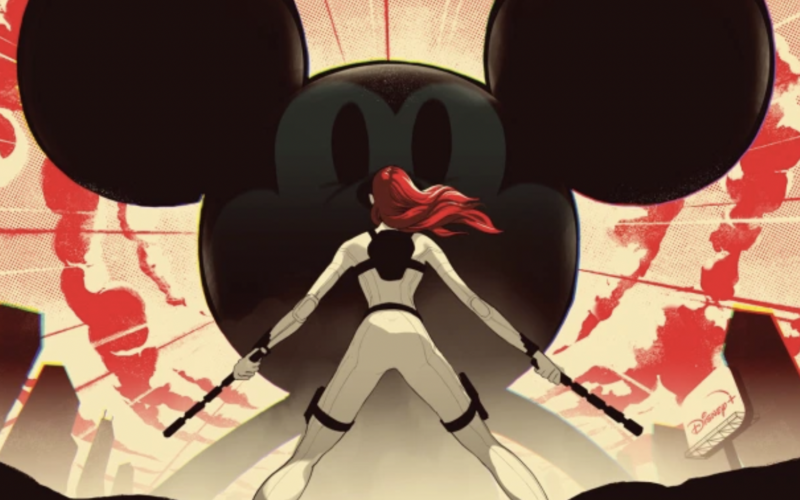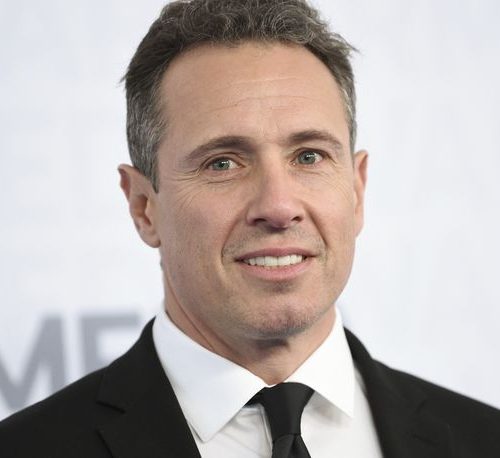BY KIM MASTERS | HollywoodReporter.Com
Troy Warren for CNT
As the Bob Chapek-led regime goes to war with a Marvel star, Hollywood stars and creatives fear the end of massive backend deals.
Let’s set aside for a moment the question of whether Scarlett Johansson has a legal leg to stand on in her fight with Disney over her compensation for Black Widow. Let’s even say she doesn’t, and that she is — as Disney has publicly contended — greedy and indifferent to the horrors of the pandemic.
It doesn’t matter.
Because even if all that were true, industry insiders agree, attacking Johansson so personally was a pretty spectacular unforced error. And many observers are laying that at the feet of CEO Bob Chapek (with an assist from reflexively vindictive top communications officer Zenia Mucha and with approval from the lawyers).
The person who isn’t getting the blame? Outgoing chairman Bob Iger. “Somebody’s playing it like an amateur,” says one former Disney executive. “Iger’s no amateur.” A top executive at a rival studio agrees, adding that the whole confrontation seems ill-advised and avoidable. “It’s insane to me — insane,” he says. “Do you think on Bob Iger’s watch he would ever have allowed a piece of talent to sue them?” (This executive notes that it’s possible to settle such disputes by finding creative ways to pay stars without setting undesirable compensation precedents.)
A Disney insider says that blame for the statement is being placed unfairly at Chapek’s feet and “this was not a unilateral decision nor an edict” from him. (It is difficult, however, to discern who, if anyone, on the studio side was informed in advance.)
Disney’s posture is being read in Hollywood as Chapek signaling his indifference to star talent. But however indifferent he may be, there is the one star Chapek and Disney absolutely, unequivocally need: Marvel Studios president Kevin Feige, who is known to be very unhappy with the studio’s attack on one of his superheroes.
We have seen before what happens when Feige gets unhappy. After myriad clashes with star-unfriendly Marvel Entertainment chairman Ike Perlmutter (including over Feige’s wish to diversify the universe by making Black Panther and Captain Marvel), Perlmutter vanished from the equation amid a 2015 reporting structure change by Iger. “My sense was that the strained relationship … was threatening [Feige’s] continued success,” Iger wrote in his memoir. And any threat to Feige and his success is simply not something that any Disney fiduciary could allow.

It’s hard to imagine that anyone else on the creative side — chief content officer Alan Horn, Lucasfilm president Kathleen Kennedy, Pixar’s Pete Docter — is any happier about having to deal with talent who have witnessed the studio lashing out at a star who, as CAA’s Bryan Lourd pointed out in his unusual public statement, “has been Disney’s partner on nine movies, which have earned Disney and its shareholders billions.”
It appears clear that Chapek, who has been — as noted in Johansson’s lawsuit — rewarded on Wall Street for his focus on building Disney+, believes it is time to establish that the days of epic eight- or nine-figure profit-sharing paydays are over. He is hardly alone in that belief — other media giants also are all about the up-front, one-time payment. And those profit participations may not seem remotely sane to most people. But talent and their representatives fought for and won them, and obviously now they are going to fight to keep them.
In time, Johansson is likely to have company on the battle lines. “It’s a much bigger existential fight that she’s really leading,” says producer Jason Blum. “It’s a very difficult thing to do, it’s really brave to do and she’s fighting for all of talent.” Financially, Blum is set for multiple lifetimes but still wants streamers to share revenue with talent in success. (He acknowledges his hypocrisy in that he just signed a rich deal with Universal to make three Exorcist movies for a large but flat up-front fee — a model that he hopes isn’t sustainable.) The alternative to paying the talent, he notes, is paying the corporation—and how, he asks, is that better?
Disney has been positioning itself as the adversary in chief for many months. Chapek, who did a stint in home video before moving on to consumer products and then to theme parks, has been leaning on numbers while leaving the messy talent-relations business to executives at the studio. It has hardly been an easy job as he took the helm at a time of crisis, with shuttered theme parks and movie theaters.
By late 2020, as studios began shifting movies that had been put into production with the expectation of an exclusive theatrical release onto their streaming services, agents began to complain that Disney was distinguishing itself — and not in a good way — in negotiations with key talent. “Disney is by far the most ridiculous on deals,” one high-level agent said then. Added another: “Their initial deals and offers were dog shit. Terrible, for first-dollar-gross players.”
In December, WarnerMedia had a hold-my-beer moment when it moved its 2021 slate to HBO Max without warning. Hollywood struck back and Warners got the memo, writing top-dollar checks to important talent and committing to an exclusive theatrical run for its 2022 movies. If that hadn’t happened, there’s little doubt that the studio would have been dragged into court before Disney.
Now Hollywood can focus its ire on the Chapek regime. Not to suggest that agencies would ever collude — that would be illegal! — but it would hardly be surprising to see Disney face litigation next from a client represented by a different agency — maybe Emma Stone and WME? Industry insiders say at this point, with the battle begun, a lot of people want to sue a lot of people.
“What the streamers are betting on is that in the next three to five years, there will only be three or four [of them] left pumping content into homes, and they’ll be so powerful that they will be able to push the price down of producing, of paying talent, of paying producers, of paying writers, directors,” says Blum. “I personally don’t think they’ll be able to do it, but that’s what they’re betting on.”
Another prominent producer thinks they will be able to do it — but doesn’t think it will be good for the industry. “From this point on, it’s just going to be work for hire,” he says. “It’s a huge sea change for everyone. You’ll still get a huge payment up front. It’s just not going to be huge home runs any more. And with time, those fees will get smaller.” But having been offered such deals, this person says, “It doesn’t matter to me whether [my movie] is a huge hit or not. The pressure’s off.” He doesn’t want to embarrass himself, but a project just needs to be good enough to get the next deal. This may help explain why so many movies made for streamers seem to lack luster.
Blum concurs. “On a streaming movie, [if] you’re not participating in the upside or downside, I think that compromises the creative process.” Blum says he’s counting on “a ton of lawsuits” in the hope that “eventually, there will be sharing in streaming — just like there has been for 50 years in this business.”
In Other NEWS



































